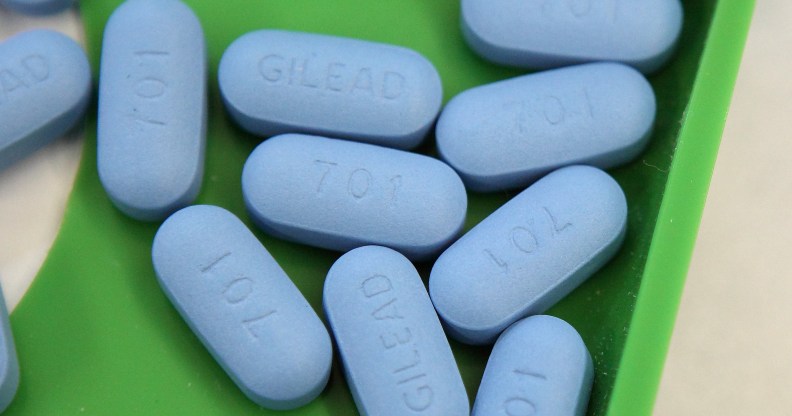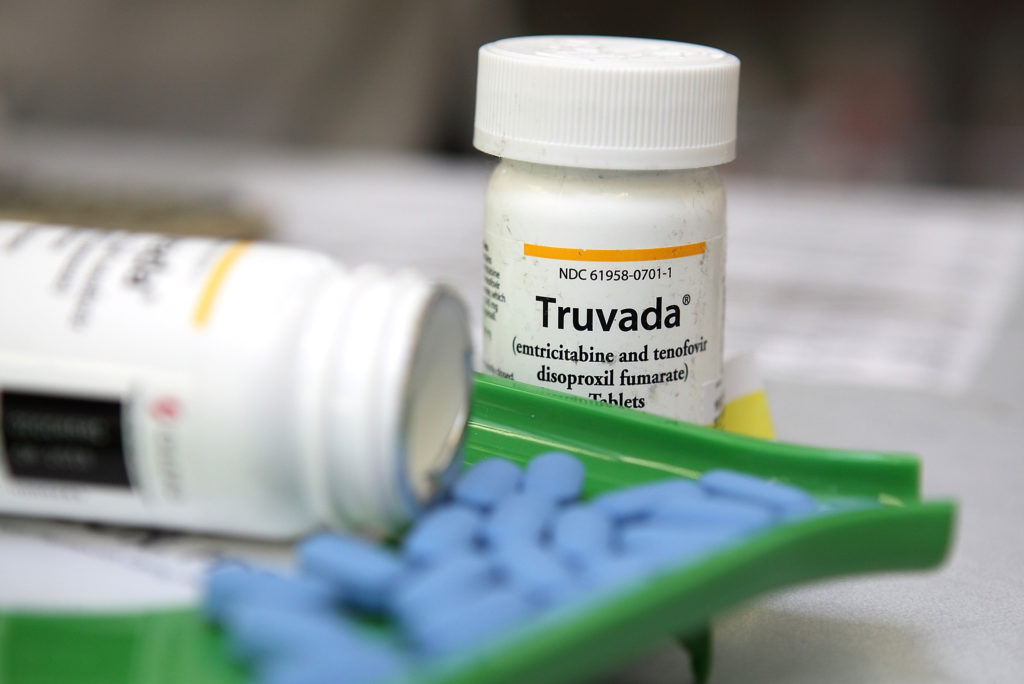Brexit could lead to a shortage of HIV-preventing PrEP drugs, experts warn

PrEP. (Justin Sullivan/Getty)
A hard Brexit could lead to a shortage of HIV-preventing drugs used for PrEP, experts have warned.
PrEP drug Truvada can drastically reduce the risk of being infected with HIV if taken daily, and is recommended for use by at-risk gay and bisexual men.
It has seen a swift uptake across the UK, with thousands of men accessing the drug through trials in England and Wales, as well as on the NHS in Scotland and Northern Ireland.
However, consultant pharmacist James O’Loan of Doctor 4 U told the Daily Mirror that PrEP drug supplies could be hindered drug shortages if the UK leaves the EU as planned on October 31.
Brexit ‘threatens supplies’ of PrEP drugs
He said: “With Brexit looming… drugs manufacturers are reducing their product portfolios.
“There are currently three manufacturers of PrEP – and as pharmacists we understand that a couple of these are potentially looking to pull out of the market.
“If demand continues to rise – as it has been doing for some time – shortages are almost inevitable.”

Supplies of antiretroviral drugs could be disrupted, experts have warned ( Justin Sullivan/Getty)
He added that “NHS hesitance” to commit to the full supply of PrEP drugs in England and Wales beyond a limited trial is also adding uncertainty to the market.
Risk of ‘significant disruption’ to drug supplies
A no-deal Brexit could also impact anti-retroviral drugs used to treat HIV, and may also impact hormone supplies for transgender people.
The British Medical Association, Royal College of Nursing and Royal College of Midwives have previously issued bleak warnings over no-deal Brexit.
A letter from the bodies said: “A no deal could cause significant disruption to the supply of medicine, lasting up to six months.
“Many medicines, including life-saving agents for cancer diagnosis and therapy, cannot be stockpiled and for those that can, stockpiles could run out.
“These kinds of shortages and delays can be fatal. No responsible government should take that risk.”
However, the government has dismissed concerns.
A spokesperson for the Department of Health and Social Care told the newspaper: “We fully understand the concerns some people have about the availability of medicines and we want to reassure them we are doing everything we can to make sure patients can access the medicines they need after Brexit on 31 October, whatever the circumstances.
“We have no evidence to suggest current or previous supply issues are linked to Brexit.”

